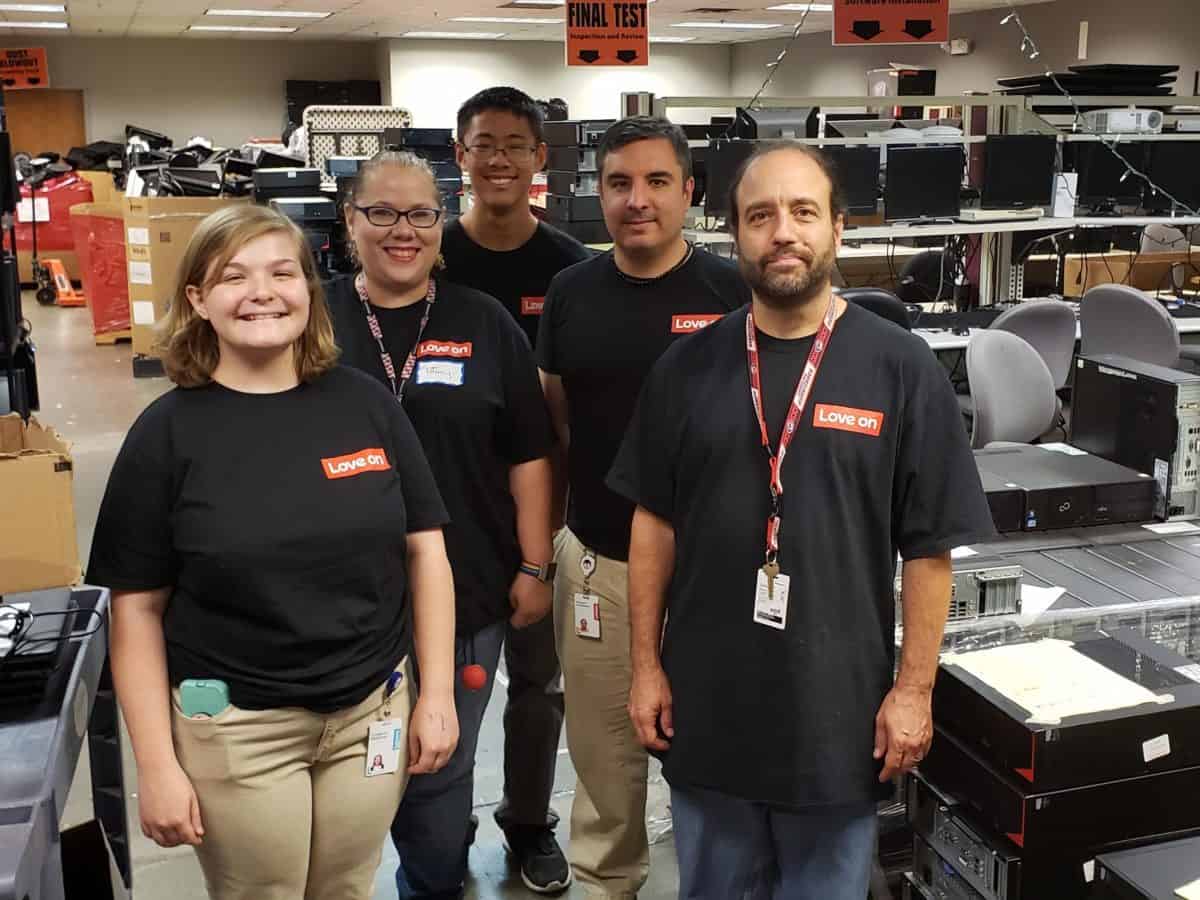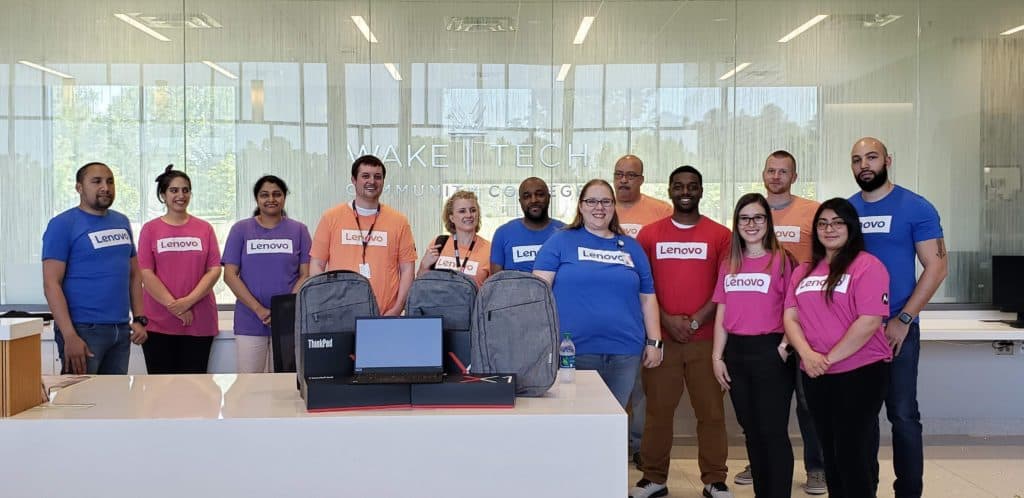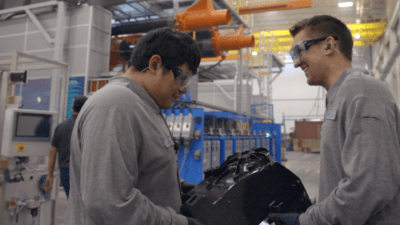

Note: The interviews in this article occurred days before the pinnacle of the COVID-19 pandemic. Community colleges have worked hard to move courses to online formats and to give support to students and businesses. However, unlike many in-class courses, work-based learning experiences are dependent upon the businesses where the students are participating, and many of those businesses have sent employees home or have temporarily closed.
Colleges are exploring options for students to complete their applied or hands-on courses like work-based learning and laboratory courses. This is a challenging time for all, but together we will get through this pandemic and work-based learning experiences will be of greater importance to students as the economy bounces back.
If a work-based learning experience helps a student realize that their selected field is not right for him or her, is that experience a failure? No, at least not in my opinion, because that is exactly what happened to me.
My first real taste of the corporate world occurred in my second year of college. I landed a co-op job at a company west of Cincinnati, Ohio that specialized in the manufacture of large commercial paint sprayers. This experience was a turning point in my life because it helped me discover that I did not want to work as an engineer in a manufacturing facility.
Though the experience allowed me to develop skills that I was not developing by sitting in classrooms, the shock of poor labor-management relationships and the economics of big business turned me off of pursuing a career in manufacturing. After completing two co-op work semesters, I decided to explore graduate school options in a different field, which eventually led me to my current career. The world lost an average engineer but gained a work-based learning disciple.
One thing I have learned during my time on the state’s NC Career Launch core team is that there are other disciples in North Carolina preaching the good word about work-based learning. Nearly every one of North Carolina’s 58 community colleges has a coordinator on staff in charge of work-based learning. In many cases, these people recruit business partners, help students get placed into opportunities, monitor their work experiences, and follow-up with students on paperwork.
Additionally, many students who have traversed a work-based learning experience are quick to point out the benefits. I found a few such individuals at Wake Technical Community College.
Kathryn Frederick: Director of work-based learning, Wake Technical Community College


Kathy Frederick speaks with passion and excitement when it comes to work-based learning and the opportunities it offers students. Wake Technical Community College typically has more than 100 students participating in work-based learning during the fall and spring semesters.
Frederick has been able to help the program gain awareness and respect in the community to a point now where many employers actually look to Wake Tech for students for work-based learning opportunities. However, she acknowledges that work-based learning opportunities for students vary greatly across the state. She was happy to learn about NC Career Launch, a state-level effort that is offering a central portal for employers to access local talent, among other things.
Tiffany Harrell: Student and Lenovo employee
Besides the skills obtained during the work-based learning experience, many of the employers involved in the programs also pay students while they take part. This is particularly important to student participants who may have families that they care for while attending college.
Tiffany Renee Harrell, current Wake Tech student and Lenovo employee, expressed that without being able to earn while learning, she would have had to drop out of college. Harrell’s story is both inspiring and heartbreaking. She grew up in foster homes, became a mother at age 20, and suddenly found herself a widow with five children after witnessing her husband have a fatal heart attack. These are impossible circumstances for an individual to have to handle, in addition to being a college student.


Anyone would forgive Tiffany for quitting college and going back to a low-income job. However, Tiffany was not allowed to give up by staff at Wake Tech, where she received help with her college expenses and found a work-based learning opportunity at Lenovo. She thrived in her work-based learning experience and received a job offer from Lenovo, where she is employed and able to work toward her degree while still caring for her family.
Harrell described many benefits she encountered during her work experience, from learning how to work with people of varying personalities, managing her time, and learning to speak up in a professional setting.
“I was helping design the hardware behind a new warehouse project,” she said. “The lead programmer allowed me to watch him coding around some errors. I saw a typo that would have given him unexpected results and been hard to catch since it was in a script and not compiled. I told him to look at that line again and he was so happy I caught it. It was a good example of a design method I learned about but also the courage to speak up.”
Harrell encourages other students to take part in work-based learning if they get the opportunity. “My experience in the program allowed me to network with many companies and professionals,” she said. “It gave me tangible work experience for my resume and valuable skills and connections for my career. I enjoyed being challenged and pushed but also feeling safe and having mentors to go to back at school and in my work environment.”


Converting the experience into employment
Harrell’s story of tragedy and perseverance is atypical for most students who participate in work-based learning. However, the success of the experience leading to permanent employment is something shared by many work-based learning students.
Frederick is quick to mention other Wake Tech students like Soufiane Aghighay, a graduate of the air conditioning, heating, and refrigeration technology program. He was the first Wake Tech work-based learning student hired by the RDU Airport Authority, and he completed his work experience there during the 2019 summer semester. Aghighay so impressed his supervisors that they offered him a permanent position when he graduated after the summer semester. He accepted the job offer and is still employed there.
Or take Jeffrey Mamuscia, a graduate of the network management program. He was selected as Wake Tech’s Work-based Learning Student of the Year in 2018. He participated in the program for three semesters with NetApp and was offered a permanent role with the company upon graduation from Wake Tech in May 2019. Frederick also said that Mamuscia recently attained a promotion with NetApp and continues to work there.
Whether the experience leads students to different career pathways, as in my case, or helps students land permanent jobs that offer opportunities for career advancement and excellent wages, there is no denying that work-based learning is an asset to both students and employers. Students gain skills and competencies not typically attained during classroom instruction and add valuable work experience to their resumes. Employers get to evaluate the students on the job and have the potential of discovering a future high-quality employee.


